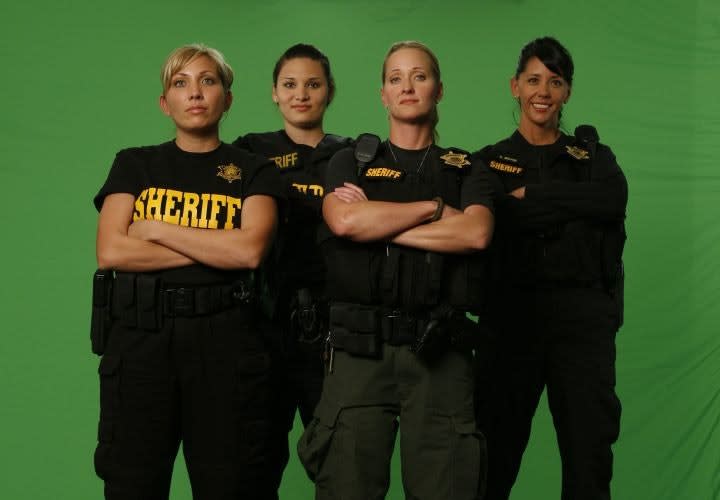During the early days of my law enforcement career, I worked as a dispatcher in a small Texas county. The sheriff called me into his office and told me he would allow me to attend the police academy. Yes, "allow."
At the time (1983), there were no female deputies on the street. The most one could hope for was attending the academy, continuing in dispatch, and gaining a raise after graduation. Right or wrong that's the way it was.
After completing the academy, the sheriff told me he was proud of my achievement, but no female would ever patrol his county. He concluded if I wished to look for a patrol position elsewhere, he would put in a good word for me. So that's exactly what I did.
This brings me to my disappointment with the police reality show, "Police Women of Maricopa County." These four female deputies police the nation's fourth-largest county and work for "America's Toughest Sheriff," Joe Arpaio. I expected them to be portrayed as professional law enforcement personnel. I was wrong.
There were little things that were subtle, such as all four deputies carrying pink handcuffs. And most had unpinned ponytails falling well past their shoulders. The fact that a 19-year veteran did not execute proper pat downs and had difficulty applying handcuffs time and again was embarrassing.
While another deputy was on patrol, she said residents of the area are especially resistant to law enforcement. She then initiated an unwarranted temporary detention of an individual that obviously had diminished mental capacity.
The deputy proceeded to use sarcasm to provoke the detainee. When the detainee was cleared and released, the deputy continued to make sarcastic comments to a male deputy as the individual walked away. The male deputy did not participate in the remarks and did not appear impressed. If this is an example of the interaction between the citizens and law enforcement, it's no wonder citizens in the area do not trust or cooperate with deputies.
Of course, there are times on the street when the only language a subject/suspect understands is foul and harsh, but it was not warranted in the instances presented. I could only conclude it was an attempt to appear tough and one of the "guys."
As far as their physical appearance, I kept in mind a professional appearance is subject to the region, department policy, and person making the determination. In my region of Texas, they would not pass inspection.
I know it makes for good television to focus on emotions and personal matters, however I don't think it makes for good police work. I doubt "real" victims and offenders care about a deputy's feelings and personal matters during response to a call.
The time has passed when females had to sit in the background begging for the opportunity to wear the badge. Once gaining the right to wear the badge, many fought alone to get the job done, while earning the respect of others. Gaining respect was achieved by showing up day after day, completing assignments, and giving the best one had to give while training to overcome shortcomings.
To be completely fair, I don't know that I would pass a camera-over-the-shoulder test either. However, they filmed four deputies over several days and this is the best they had?
This is not the image I envisioned so many years ago. I think we deserve better.












